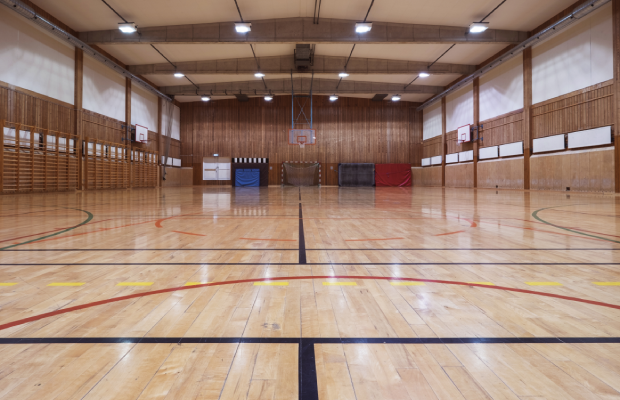GCSE revision
Hello I'm starting my exams in May/ June and I'm taking the following
Maths
English language
English literature
It
Core science
Additional science
Spanish
Geography
Philosophy and ethics
I need to get at least 6-A*-B grades to get into my local sixth form
I was wondering if you have any tips to revising effectively to get the best grades possible, and when you I start revising
Maths
English language
English literature
It
Core science
Additional science
Spanish
Geography
Philosophy and ethics
I need to get at least 6-A*-B grades to get into my local sixth form
I was wondering if you have any tips to revising effectively to get the best grades possible, and when you I start revising
Original post by Lily_xxx
Hello I'm starting my exams in May/ June and I'm taking the following
Maths
English language
English literature
It
Core science
Additional science
Spanish
Geography
Philosophy and ethics
I need to get at least 6-A*-B grades to get into my local sixth form
I was wondering if you have any tips to revising effectively to get the best grades possible, and when you I start revising
Maths
English language
English literature
It
Core science
Additional science
Spanish
Geography
Philosophy and ethics
I need to get at least 6-A*-B grades to get into my local sixth form
I was wondering if you have any tips to revising effectively to get the best grades possible, and when you I start revising
My advice would be start revision now. Even if you're only doing 20 minutes of reading notes here and there for some of the subjects, it's better than nothing.
First figure out which subjects need priority - which subjects are you going to need to work most in to get the grade you want? These will need to have more time spent on them, but you mustn't neglect your other subjects. Go over completed past papers and mocks to find out why you're losing marks - it's much easier to revise if you've got a starting point (eg. a topic you're struggling to understand or remember, if essay/long answer questions are tripping you up, etc).
To revise effectively you basically need to do two things: make sure you're revising often enough, and find a revision technique that works for you so that the revision is actually useful. This depends on how you learn, whether reading and writing things out is best, making revision notes/mind maps/posters, index cards (question/word on the front, answer/definition on the back). Past papers are always useful, but look at how many you have available (on your exam board's website - check you've got the right specification for your course!) and how many weeks you have until exams. You don't want to run out too fast.
You might find it helpful to have a revision timetable so that you know you're using your time properly. Draw out a grid showing a week, then mark in all the time you're at school/sleeping etc, anything you do regularly that means you can't revise. Then divide the rest of the time up between revision and free time - you need to find a balance between doing plenty of work, but also having time to yourself so you don't get too stressed. Developing good revision habits now will also make life much easier for AS and A level exams! If in doubt about how much revision you should be doing, start lower and build it up over the next few weeks when you see how much you can actually do. Over the Easter holidays make sure you do plenty of work - if having a structure helps you, write a new timetable out for those two weeks, or just a rough outline (eg. do revision 5 days, have Tuesday and Saturday off to see friends/relax).
Finally, take short, regular breaks during revision, otherwise you don't take things in as well. Good luck

For Maths- Practice!!!!! Especially past papers!
Eng Lang- Past Papers...
Eng Lit- Read each novel/book/play and make notes. Also watch the movies if u can get hold of them. And there is no substitute of actually
reading the books.
For sciences- use textbook contents page as revision plan. Buy other textbooks and work from them. Make notes and flashcards etc. Watch
Youtube videos to help your understanding.
Philosophy and ethics- make notes, learn them, past papers. Mind maps help also. I got 96% for my mock so I know it works!!!
I don't do your other subjects. Sorry!!!
Good Luck
Eng Lang- Past Papers...
Eng Lit- Read each novel/book/play and make notes. Also watch the movies if u can get hold of them. And there is no substitute of actually
reading the books.
For sciences- use textbook contents page as revision plan. Buy other textbooks and work from them. Make notes and flashcards etc. Watch
Youtube videos to help your understanding.
Philosophy and ethics- make notes, learn them, past papers. Mind maps help also. I got 96% for my mock so I know it works!!!
I don't do your other subjects. Sorry!!!
Good Luck
My tips are:
- Don't over exert yourself!
- Make sure you do some amount of revision every day. Even if it's just 1 hour (I find this especially useful for languages).
- Take frequent breaks.
- Make sure you have a good working environment. By this I mean a clean, tidy desk / table space to sit at.
- For things that just aren't sticking in your head write them on an index card / poster / post it note and put it somewhere where you will see it every day. For example, I have notes stuck on the wall in front of me where I sit at my computer.
- Make sure you have snacks and drinks around you.
- Get good amounts of sleep every night.
Good luck!!
- Don't over exert yourself!
- Make sure you do some amount of revision every day. Even if it's just 1 hour (I find this especially useful for languages).
- Take frequent breaks.
- Make sure you have a good working environment. By this I mean a clean, tidy desk / table space to sit at.
- For things that just aren't sticking in your head write them on an index card / poster / post it note and put it somewhere where you will see it every day. For example, I have notes stuck on the wall in front of me where I sit at my computer.
- Make sure you have snacks and drinks around you.
- Get good amounts of sleep every night.
Good luck!!
Find out what type of learner you are to make sure your revision is efficient. There's no point in writing lots of notes and flash cards if you are an auditory learner. Past papers are a good idea, look at the mark schemes to see how marks are awarded and what examiners are looking for in answers. Also I don't forget to do some exercise as well even if it is just a 10-15min walk between study periods, fresh air and a change of scenery can do wonders.
Quick Reply
Related discussions
- GCSE Exam Discussions 2024
- GCSE
- GCSE Useful revision 2021
- GCSEs survey
- GCSE Edexcel Statistics resources
- AQA Triple Science revision guides - is CGP the gold standard?
- Help for Pschology gcse
- Revision
- How to revise?
- GCSE
- Gcse AQA HiSTORY POWER AND PEOPLE
- gcse latin resources?
- Any good revision resources/ websites for GCSE?
- the ultimate grow your grades GCSE 💗
- If one revised purely from CGP revision guides (no textbooks or class notes).
- gcse/a level eng lit frankenstein help
- Is grade 7 in gcse a good grade and how hard is it to get it?
- Should I start revising
- Should I take R.E GCSE ?
- Best revision websites for Maths?
Latest
Last reply 7 minutes ago
AQA A Level Geography Paper 1 (7037/1) - 16th May 2024 [Exam Chat]Last reply 7 minutes ago
Official Politics and/or International Relations Applicants Thread 2024Last reply 10 minutes ago
Official Cambridge Postgraduate Applicants 2024 ThreadLast reply 13 minutes ago
Microsoft apprenticeship 2024Last reply 14 minutes ago
Official London School of Economics and Political Science 2024 Applicant ThreadLast reply 14 minutes ago
Official: King's College London A101 EMDP 2024 Entry ApplicantsMedical Schools
1009
Last reply 16 minutes ago
Official Dental Hygiene and Therapy (Oral Health Science) 2024 Entry ThreadDentistry
2797
Last reply 17 minutes ago
Is getting a 3rd class honours in interior architecture and design bad?Trending
Last reply 1 day ago
went from 3s to 9s with (literally) night before revision - ask me anythingGCSEs
26
Trending
Last reply 1 day ago
went from 3s to 9s with (literally) night before revision - ask me anythingGCSEs
26




